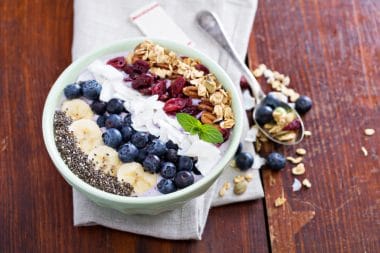Do you find yourself reaching for a soda before any other drink options? Or have you noticed that its 10 pm at night and you are running to the grocery store to buy more soda because you have run out? Well if that’s the case you may have a soda habit. Americans drink about 44 gallons of soda per year. Which is the least amount of gallons that have been consumed in over 15 years. Soda used to be the highest consumed beverage. Soda in moderation is not a bad thing. If you find yourself drinking more than one a day every day that is when you can start to see it taking a toll on your health.Â
Health Problems From Soda Consumption
Continuous intake of soda can lead to many health problems.Â
Too much soda can lead to obesity. We sometimes forget what we drink counts towards calories too. Even diet sodas still have calories and drinking multiple ones a day can lead to obesity.
Another thing too much soda can lead to vitamin deficiencies. This is partially due to the fact that if we are choosing soda to drink we aren’t choosing other things such as milk to give us calcium. Not only that soda can actually deplete your body’s calcium from the acids that are found in soda. In return to us not getting enough calcium it can lead to our bones being brittle or osteoporosis.
Another thing drinking too much soda can lead to dental decay. Soda since it is so sugary can be harmful to our teeth. Along with that the acid in the soda mixes with the bacteria in our mouths and can actually cause enamel erosion.Â
Too much sugar, too many calories, and another problem with soda is too much caffeine. Soda has the highest form of caffeine in a beverage. The problem with caffeine is that it is addictive. So if you drink too much soda daily you will become dependent on it making it harder to quit if you want to decrease how much soda you are drinking.Â
Too much soda daily can lead to other chronic health diseases. It can increase your metabolic syndrome, impair your sugar levels, cause you to have high blood pressure, cause high cholesterol levels. Too much soda can even increase your chances of heart attacks. If you are a woman and drink too much soda you have a higher chance of developing type two diabetes. The benzoic acid that is in soda when consumed turns into Benzene, which has been shown to be a cancer causer. Soda can cause many different negative effects on your body if you aren’t consuming it in moderation.Â
Is diet soda a better choice?
Studies have shown that one soda a week is all you should consume. The soda habit of drinking soda regularly, is one of the most common habits. Just switching your regular soda to diet soda may not be as beneficial as you think. Diet sodas still contain artificial sweeteners as opposed to real sugar you get from a regular soda. Though there are no studies to prove that too much artificial sweetener is bad, it is still the thought of consuming in moderation, switching from one thing to the next in over consumption still is not healthy.
Tips to Conquer Your Soda Habit
If you decide to cut back on your soda consumption there are some tricks to try to help you succeed. It can be very hard to give up soda, especially if you have a caffeine addiction to have to try and beat too. Caffeine withdrawal can lead to some horrible symptoms of headaches, fatigue, decreased alertness, depressed mood, and irritability. This does not mean you cannot succeed though to cut back on your soda intake.
The first thing you have to make sure you do is commit. Set a goal for yourself and make sure you stick with it.Decreasing your soda intake can be derailed rather quickly if you just say to yourself well one isn’t going to hurt. That one could set you back all the way to day one of trying to stop drinking soda. Make sure you are committed from the start, and it is a help if you have someone who will help hold you accountable.
Another step you can take that may be helpful is switching one of your regular sodas to diet soda. Gradually make the switch from regular to diet. This will help you decrease calorie intake, and will help your body start to adjust from not having so much sugar.
If you have a caffeine addiction you will want to start switching from caffeinated soda to caffeine free soda. Again gradually so to try and put off the caffeine withdrawal symptoms. Caffeine withdrawal is normal if your body is addicted to it, so some symptoms may occur even with the gradual switch. But gradually switching will be easier on your body than quitting cold turkey.
A huge help is to make sure that you keep other tasty drinks readily available for yourself instead of soda. Pack your fridge with anything else you like to drink so you aren’t tempted to drink a soda because it’s all there is.
Soda Alternatives
Here are some alternative drink choices. Milk, soy, almond, or skim are deemed healthiest low in calories and high in vitamins. Water of course the best choice, but not always the most appealing. Spice up your water though with lemon, mint, cucumber or drink sparkling water. Green or black tea is a very healthy choice as well. If you are worried about tea having caffeine, you can look for caffeine free tea. Coffee is also another healthy choice as long as you don’t cram it full of sugar and creamer. If you drink black coffee it is healthy. Coffee can be an ok choice for even someone who isn’t looking to give up caffeine altogether. You can also mix some fruit juice with seltzer water to make a sparkling juice that can be an appetizing beverage. The main thing is to make sure you have drink choices that you are willing to drink easily convenient for yourself as you go through this transition.Â
ConclusionÂ
Soda in moderation is not bad. Make sure you are drinking in moderation and not access as to hurt your body. If you decide to decrease your soda intake don’t forget to make sure you truly commit, start switching your soda choices to help you with the elimination process, and stock up your fridge with convenient tasty options.Â
Drinking Soda Is Harmful To Your Health Tips For Quitting Here #HealthStatus
Sources:
globellifeinsurance.com
webmd.com








Reply